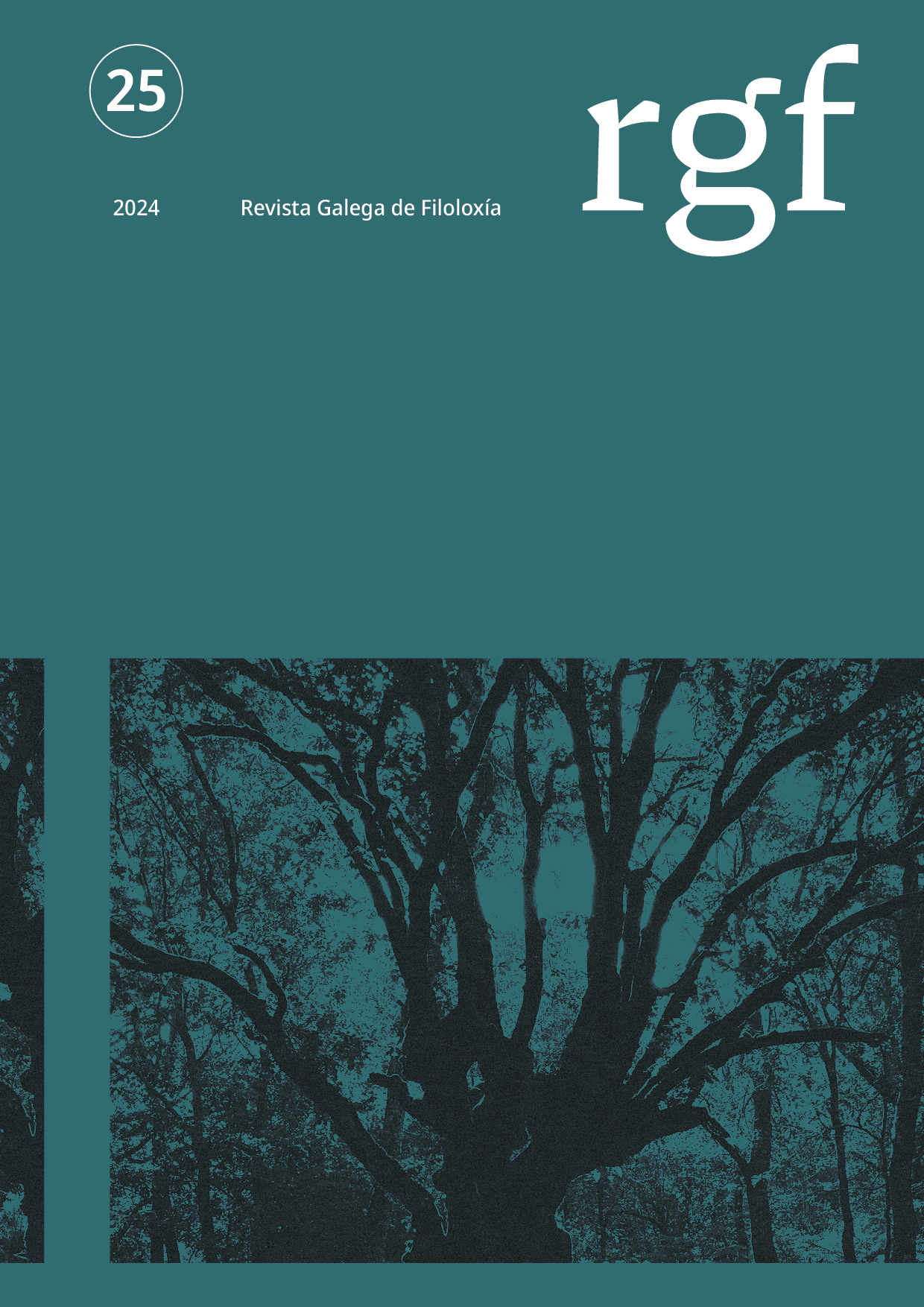Semântica e sintaxe das orações interrogativas com o quantificador quão no português contemporâneo
Contido principal do artigo
Resumo
Este trabalho faz uma análise gramatical, semântica e sintática, das orações interrogativas (num sentido lato que abrange também as chamadas orações exclamativas subordinadas) com o morfema quão no português contemporâneo. Discute o valor semântico de quão como quantificador de graduação, explorando a diversidade de categorias a ele que se aplica: adjetivais, adverbiais, prepositivas e quantificacionais. Analisa a estrutura interna das orações com quão, considerando a diversidade de formas dos constituintes-Q que as encabeçam. Refere a variação na forma do quantificador (quão vs. o quão), a compatibilidade com a inserção de é que e a competição entre quão adjetival e quanto adverbial. O trabalho é orientado para a análise do uso contemporâneo, nas variedades padrão do português europeu e brasileiro, e para o registo de diferenças nesse uso. São usados sistematicamente dados de extensos corpora de texto jornalístico. O número de registos dos diferentes subtipos sintático-semânticos de orações com quão nesses corpora é contabilizado e apresentado em cinco quadros.
Descargas
Métricas
Detalles do artigo
Citas
Alonso-Cortés, Ángel (1999). “Las construcciones exclamativas. La interjección y las expressiones vocativas”. Em Bosque, Ignacio, & Demonte, Violeta (dirs.), Gramática Descriptiva de la Lengua Española. Real Academia Española, 3993-4050. Madrid: Espasa.
Barbosa, Pilar (2013). “Subordinação Argumental Finita”. Em Raposo, Eduardo P. et al. (orgs.), Gramática do Português, 1819-1897. Lisboa: Fundação Calouste Gulbenkian.
Barbosa, Pilar, Santos, Pedro, & Veloso, Rita (2013). “Tipo de frase e força ilocutória”. Em Raposo, Eduardo P. et al. (orgs.). Gramática do Português, 2515-2586. Lisboa: Fundação Calouste Gulbenkian.
Brito, Ana Maria (2003) [1983]. “Frases interrogativas”. Em Mateus, Maria Helena Mira, Brito, Ana Maria, Duarte, Inês, Faria, Isabel Hub et al. Gramática da Língua Portuguesa. Lisboa: Editorial Caminho.
Castilho, Ataliba. T. de (2010). Nova Gramática do Português Brasileiro. São Paulo: Editora Contexto. DOI: https://doi.org/10.11606/issn.2176-9419.v13i1p7-16
Cresswell, Max (1976). “The semantics of degree”. Em Partee, Barbara (ed.), Montague grammar, 261-292. New York: Academic Press. DOI: https://doi.org/10.1016/B978-0-12-545850-4.50015-7
Figueiredo, João Nunes de, & Ferreira, António Gomes (1973) [1965]. Compêndio de Gramática Portuguesa. Porto: Porto Editora.
Grimshaw, Jane (1979). “Complement selection and the lexicon”, Linguistic Inquiry, 10(2), 279-326.
Huddleston, Rodney (2002). “Clause type and illocutionary force” / “Content clauses and reported speech”. Em Huddleston, Rodney, & Pullum, Geofrrey K., The Cambridge Grammar of the English Language, 851-945 / 947-1030. Cambridge: Cambridge University Press. DOI: https://doi.org/10.1017/9781316423530.012
Kennedy, Chris (1999). Projecting the adjective: the syntax and semantics of gradability and comparison. New York: Garland Publishing.
Peres, João Andrade (2013). “Semântica do sintagma nominal”. Em Raposo, Eduardo P. et al. (orgs.), Gramática do Português, 735-815. Lisboa: Fundação Calouste Gulbenkian.
Peres, João Andrade, & Móia, Telmo (1995). Áreas críticas da língua portuguesa. Lisboa: Editorial Caminho.
Suñer, Margarita (1999). “La subordinación sustantiva: la interrogación indirecta”. Em Bosque, Ignacio, & Demonte, Violeta (dirs.), Gramática Descriptiva de la Lengua Española. Real Academia Española, 2149-2195. Madrid: Espasa.
Williams, Edwin B. (1975) [1961]. Do latim ao português. Rio de Janeiro: Tempo Brasileiro (Tradução do original inglês: Williams, Edwin B. (1938), From Latin to Portuguese. Historical Phonology and Morphology of the Portuguese Language. University of Pennsylvania Press / Oxford University Press.).
Zanuttini, Raffaela, & Portner, Paul (2003). “Exclamative Clauses: At the Syntax-Semantics Interface”, Language, 79(1), 39-81. DOI: https://doi.org/10.1353/lan.2003.0105
Corpora online consultados
cetempúblico 2.0 v. 12.1, http://www.linguateca.pt/ACDC/ (Consultado em 09.03.2024).
Linguateca Todos Juntos, http://www.linguateca.pt/ACDC/ (Consultado em 09.03.2024).
NILC-São Carlos v. 14.2, http://www.linguateca.pt/ACDC/ (Consultado em 09.03.2024).
Vercial v. 16.7, http://www.linguateca.pt/ACDC/ (Consultado em 09.03.2024).



